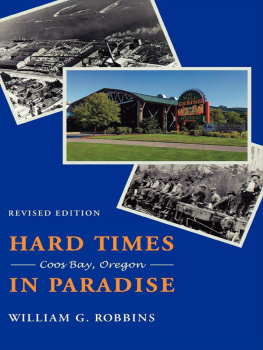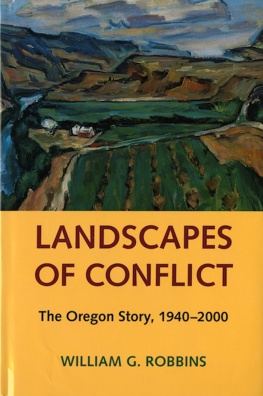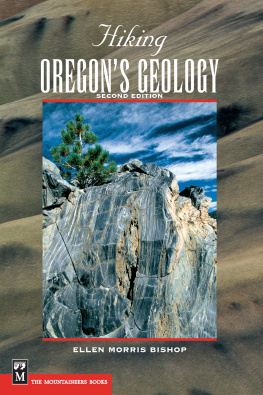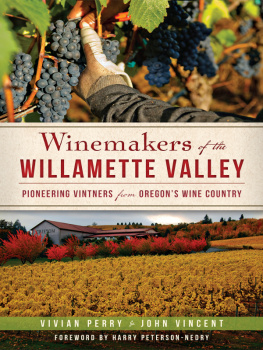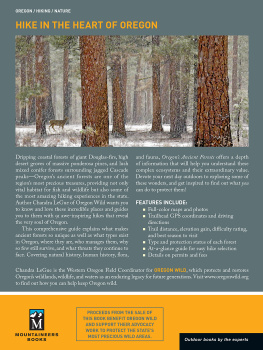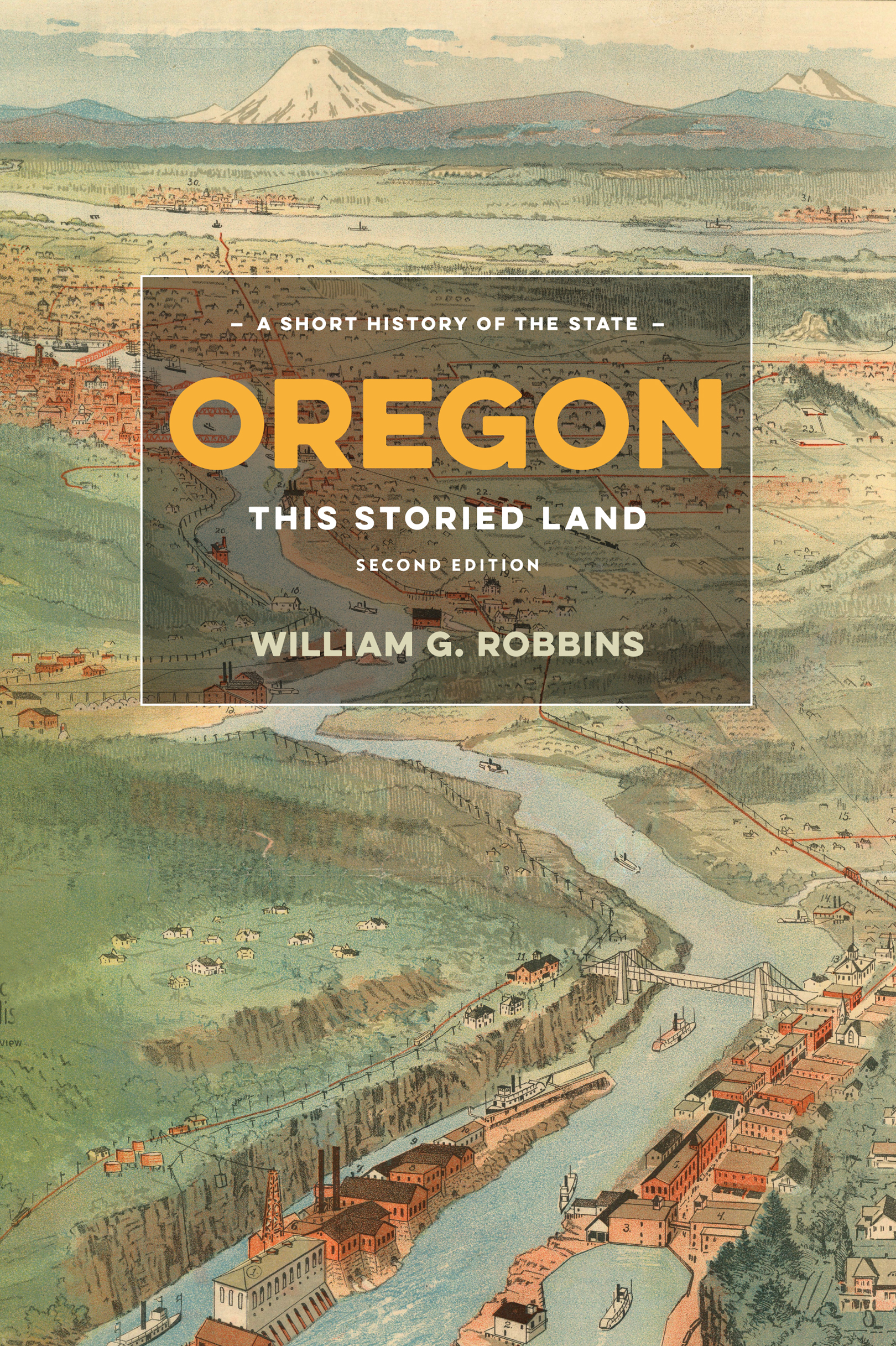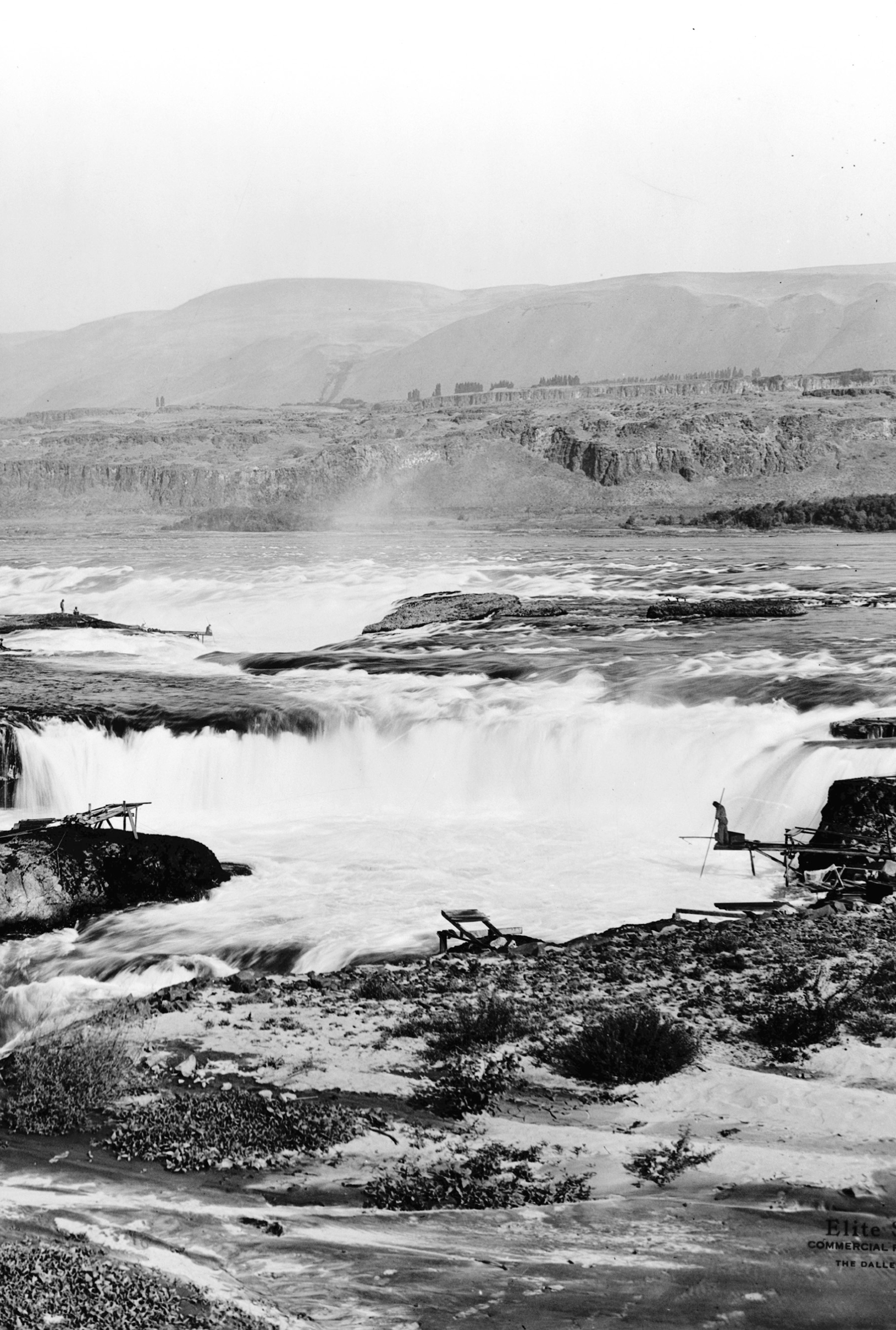Contents
Guide
Pagebreaks of the print version
OREGON
THIS STORIED LAND
SECONDEDITION
William G. Robbins
UNIVERSITY OF WASHINGTON PRESS
Seattle
Second edition copyright 2020 by the University of Washington Press
First edition copyright 2005 by William G. Robbins
Composed in Arno Pro, typeface designed by Robert Slimbach
Maps by Pease Press Cartography, www.peasepress.com
Frontispiece: Celilo Falls photographed from the great fishery site on the Oregon side of the Columbia River in 1931. Courtesy Library of Congress, LC-USZ62-107043.
24 23 22 21 20 5 4 3 2 1
Printed and bound in the United States of America
All rights reserved. No part of this publication may be reproduced or transmitted in any form or by any means, electronic or mechanical, including photocopy, recording, or any information storage or retrieval system, without permission in writing from the publisher.
UNIVERSITY OF WASHINGTON PRESS
uwapress.uw.edu
LIBRARY OF CONGRESS CATALOGING-IN-PUBLICATION DATA
Names: Robbins, William G., 1935 author.
Title: Oregon : this storied land / William G. Robbins.
Description: Second edition. | Seattle : University of Washington Press, [2020] | Includes bibliographical references and index.
Identifiers: LCCN 2019041154 (print) | LCCN 2019041155 (ebook) | ISBN 9780295747255 (hardcover) | ISBN 9780295747248 (paperback) | ISBN 9780295747262 (ebook)
Subjects: LCSH: OregonHistory. | OregonSocial conditions.
Classification: LCC F876 .R63 2020 (print) | LCC F876 (ebook) | DDC 979.5dc23
LC record available at https://lccn.loc.gov/2019041154
LC ebook record available at https://lccn.loc.gov/2019041155
The paper used in this publication is acid free and meets the minimum requirements of American National Standard for Information SciencesPermanence of Paper for Printed Library Materials, ANSI Z39.481984.
To Marianne Keddington-Lang, who shepherded the first edition through the publication process, to Julidta Tarver, a dear friend and my longtime editor with the University of Washington Press, and to the memory of Bonnie Hill (19452019), who passionately loved the streams and mountains of Oregons Coast Range
CONTENTS
ACKNOWLEDGMENTS
This book had its beginnings in the summer of 2001 with the Oregon Historical Societys (OHS) outreach efforts to promote a better understanding of the states history, especially in public schools. The OHSs former executive director, Norma Paulus, led a successful fund-raising effort to support what became known as the Oregon History Project. The OHSs education director, Marianne Keddington-Lang, guided the early development of the project as it expanded and advanced along several fronts.
Beginning in the fall of 2001 and continuing through the next year, I drafted a seven-chapter outline of Oregon history and then turned the outline into a short narrative. Paralleling this effort, OHS staff constructed the Oregon History Project website featuring the historical narrative and links to appropriate documents, photographs, and maps. As part of this collaborative effort, historian Bill Lang and I presented a few history workshops for public schoolteachers at various sites around the state.
With 144 pages of print manuscript already in the bankand with the enthusiastic support of Marianne Keddington-LangI decided to purge more than thirty years of files and extend the website narrative into a book-length history of Oregon. Karen Hoppes and Eckard Toy provided valuable input in framing the original outline. Eckard and Katrine Barber offered helpful and perceptive critiques of the full manuscript. My greatest debt is to Katrine for her constructive suggestions and probing review of the manuscript. Her advice is reflected especially in the more careful consideration of social issues. This book owes much to Bill Lang and our ongoing discussions about how to properly frame a compelling history of Oregon.
For the revised second edition, I owe a debt of gratitude to Carl Abbott and Larry Lipin for valuable advice in attending to omissions in the first edition and for themes to emphasize in the second edition. I am grateful, as well, for the friendly and helpful assistance of Andrew Berzanskis of the University of Washington Press.
Introduction
W HEN THE FIRST edition of Oregon: This Storied Land went to press in 2005, Oregon was recovering from a severe recession in which its percentage of unemployed people ranked first in the nation. The state had lost more than one thousand teaching positions and suffered significant reductions in state and local workers. As the economy improved, an influx of newcomers slowed the effort to reduce unemployment. There were other challenges: acrimony over tax policy, support for public schools, property-rights disputes, assisted suicide, gay and lesbian rights, and access to federal timber. Mirroring politics at the national level, Oregon lawmakers engaged in hotly contested debates leaving little room for compromise. As the calendar approached 2020, legislators argued over taxation, carbon sequestration strategies, the states Public Employees Retirement System (PERS), gun rights, and the vaccination of children.
Oregons contentious polity since the mid-1990s differs dramatically from the remarkable cadre of Republicans and Democrats who declared the cleanup of the Willamette River during the 1960s, passed a measure asserting public ownership of the states ocean beaches (1967), pushed through the nations first Bottle Bill (1971), and established Oregons pathbreaking land-use planning measure in 1973. The unlikely threesome behind the latter proposal included the governor, Tom McCall, born to wealth in Situate, Massachusetts (1913); Hector Macpherson, born in Albany, Oregon (1918), the son of a former legislator and farmer; and Ted Hallock, Portland born (1922) and a student at the University of Oregon when the Japanese bombed Pearl Harbor. They were strikingly different in temperament. McCall, the best known, was gregarious, a journalist and television commentator who served two memorable terms as Oregons governor. Friends described the slender, quiet, well-educated Macpherson as a cerebral dairy farmer. Hallock, brilliant and temperamental, eventually founded a successful advertising agency in Portland.
The two Republicans (McCall and Macpherson) and the urban Democrat (Hallock) shared a passion in defending Oregon from exploiters near and far. Macpherson founded a planning commission in Linn County in the early 1960s, out of his concern for unregulated land use in the Willamette Valley, where farmland threatened to be little more than a monument to mans greed and shortsightedness. Elected to the Oregon senate in 1970, Macpherson found kindred planning supporters on McCalls staff and worked with the governors office to draft a land-use bill that would place ultimate authority with the state. Hallock, elected to the Oregon senate in 1962, chaired the Senate Environmental and Land-Use Committee, supported land-use regulation, and backed McCalls efforts to shutter pulp companies fouling the Willamette River.
In the lead-up to the 1973 legislative session, McCall launched a campaign to promote land-use planning and travelled the state to push the proposal. The capstone to McCalls effort was his stirring January address to the legislature, warning about the spread of sagebrush subdivisions, coastal condomania and the ravenous rampage of suburbia in the Willamette Valley. With S.B. 100 before his Senate Environment and Land-Use Committee (Macpherson was also a member), Hallock held hearings before crowds of onlookers without gaining much traction. With the assistance of an advisory committee headed by L. B. Day, the fiery former head of Oregons Department of Environmental Quality, Hallock shepherded a compromise bill through the senate that passed eighteen to ten. Hallock and Macpherson delivered the bill to the house, dominated by liberal Democrats, where the measure passed without amendments.


